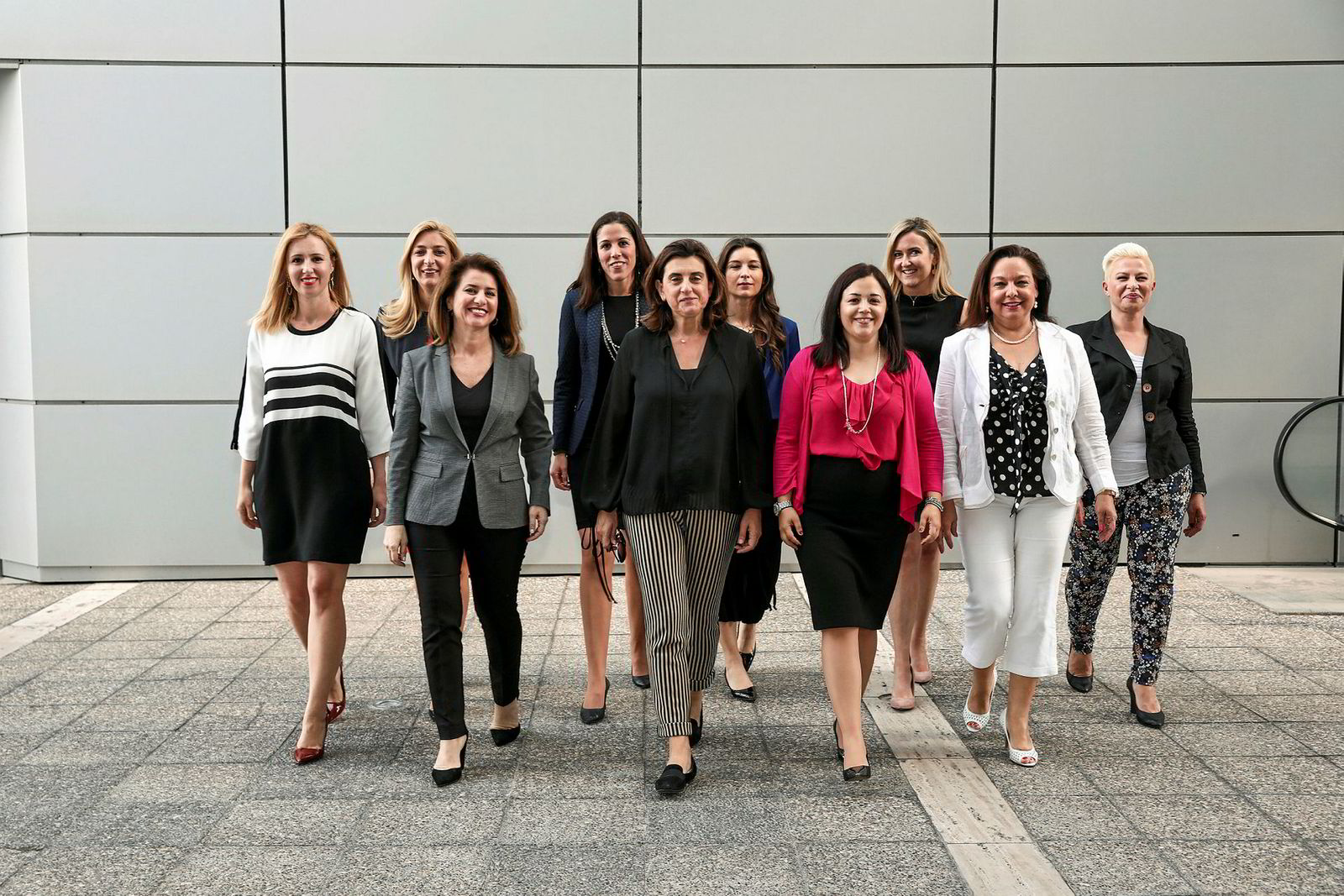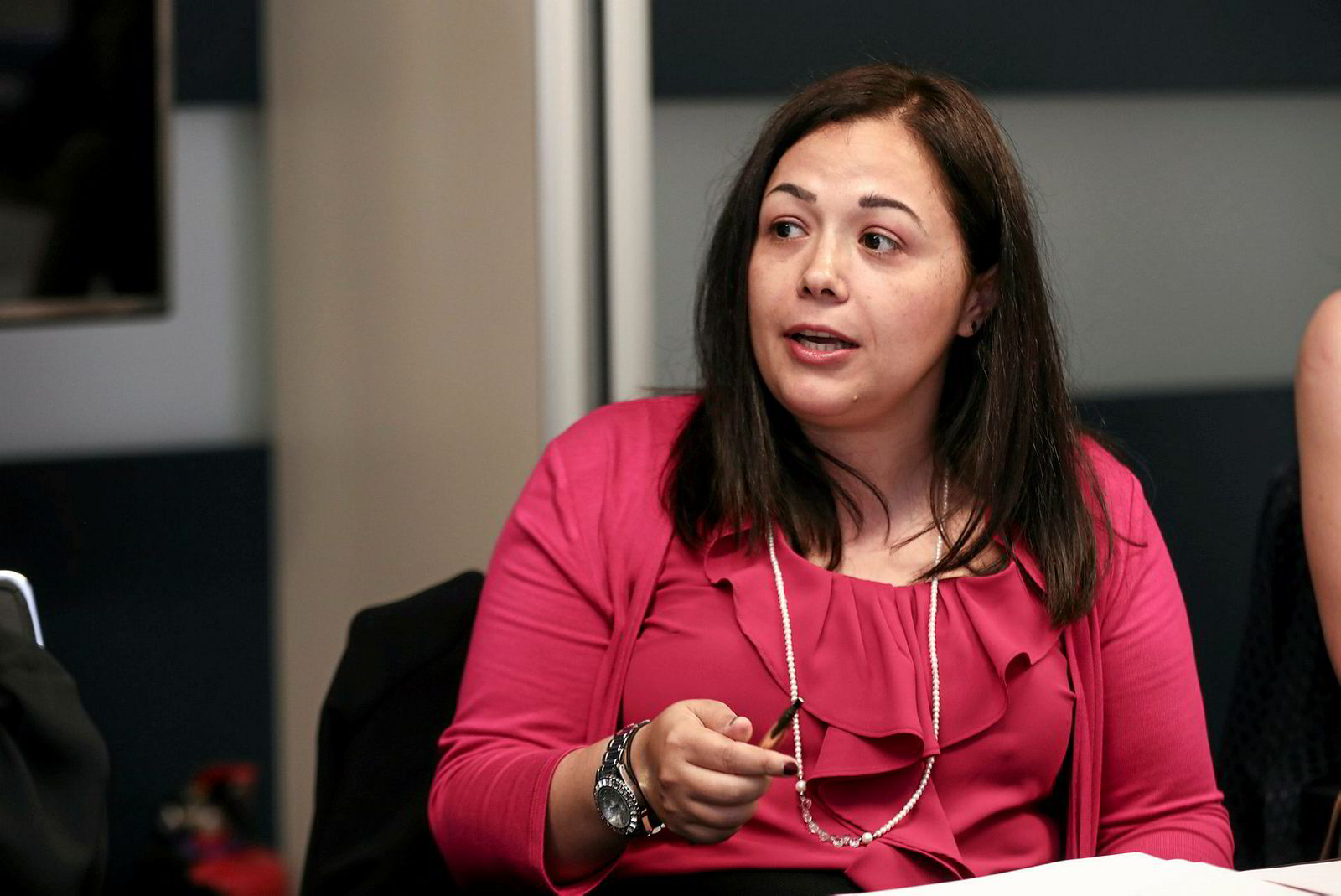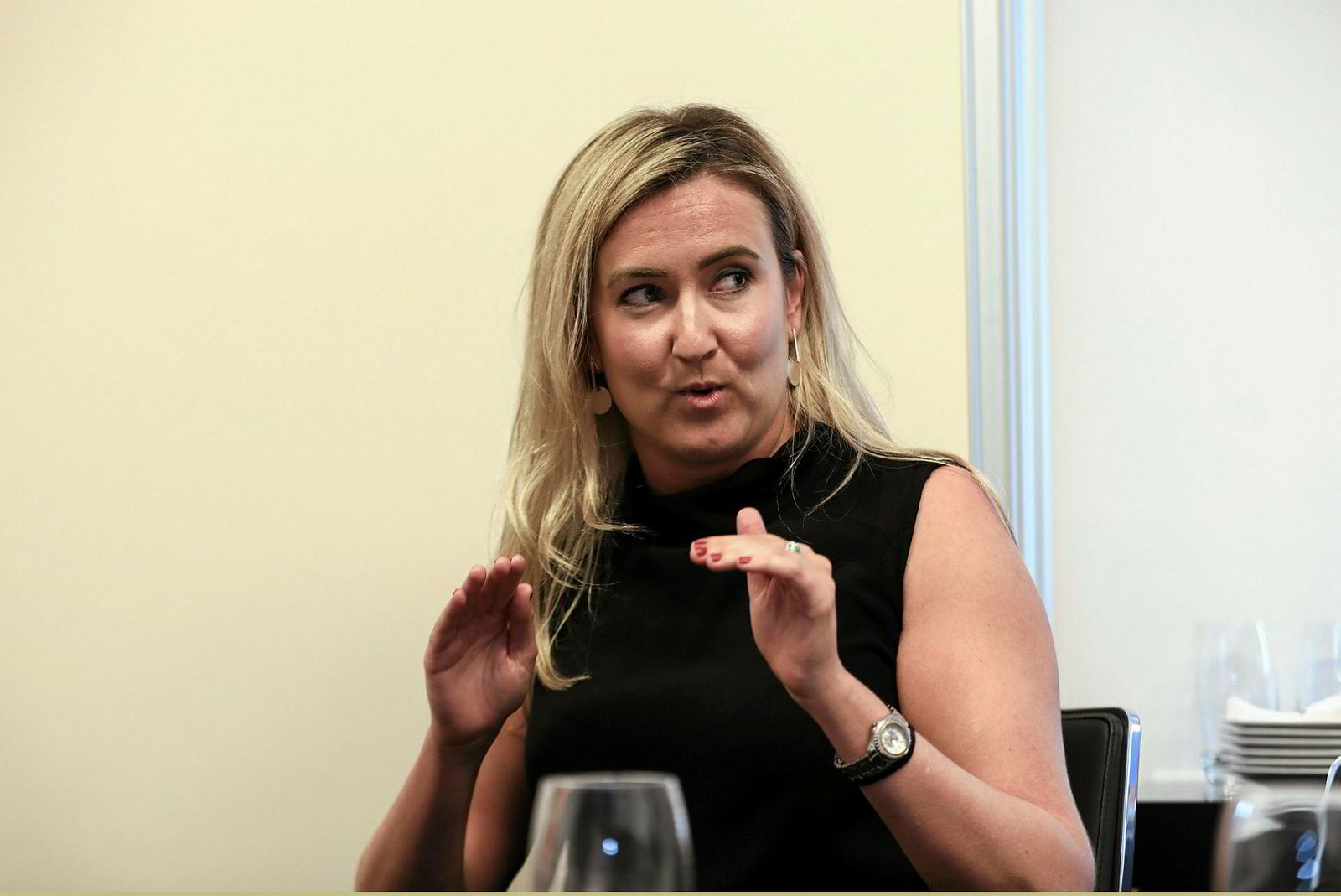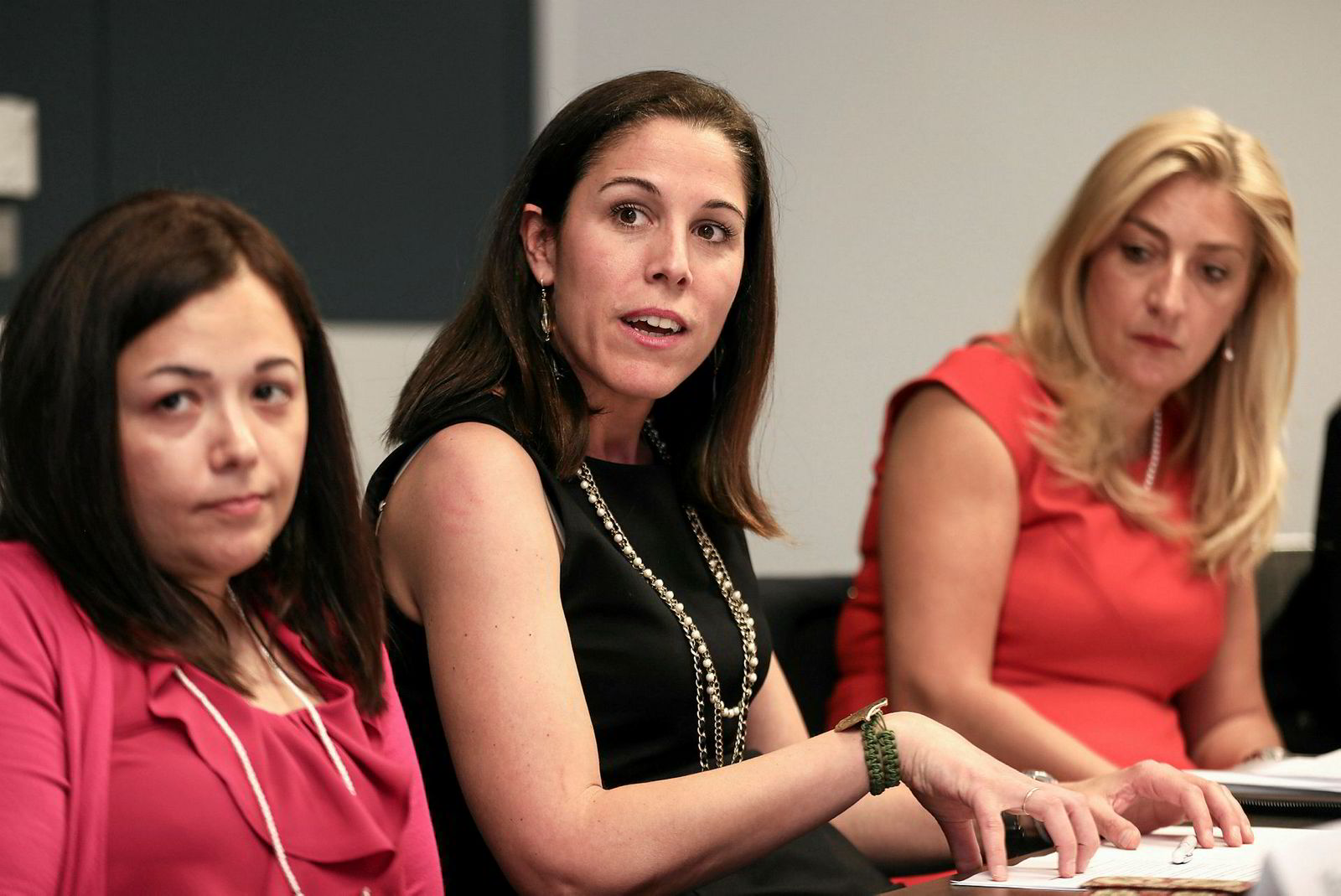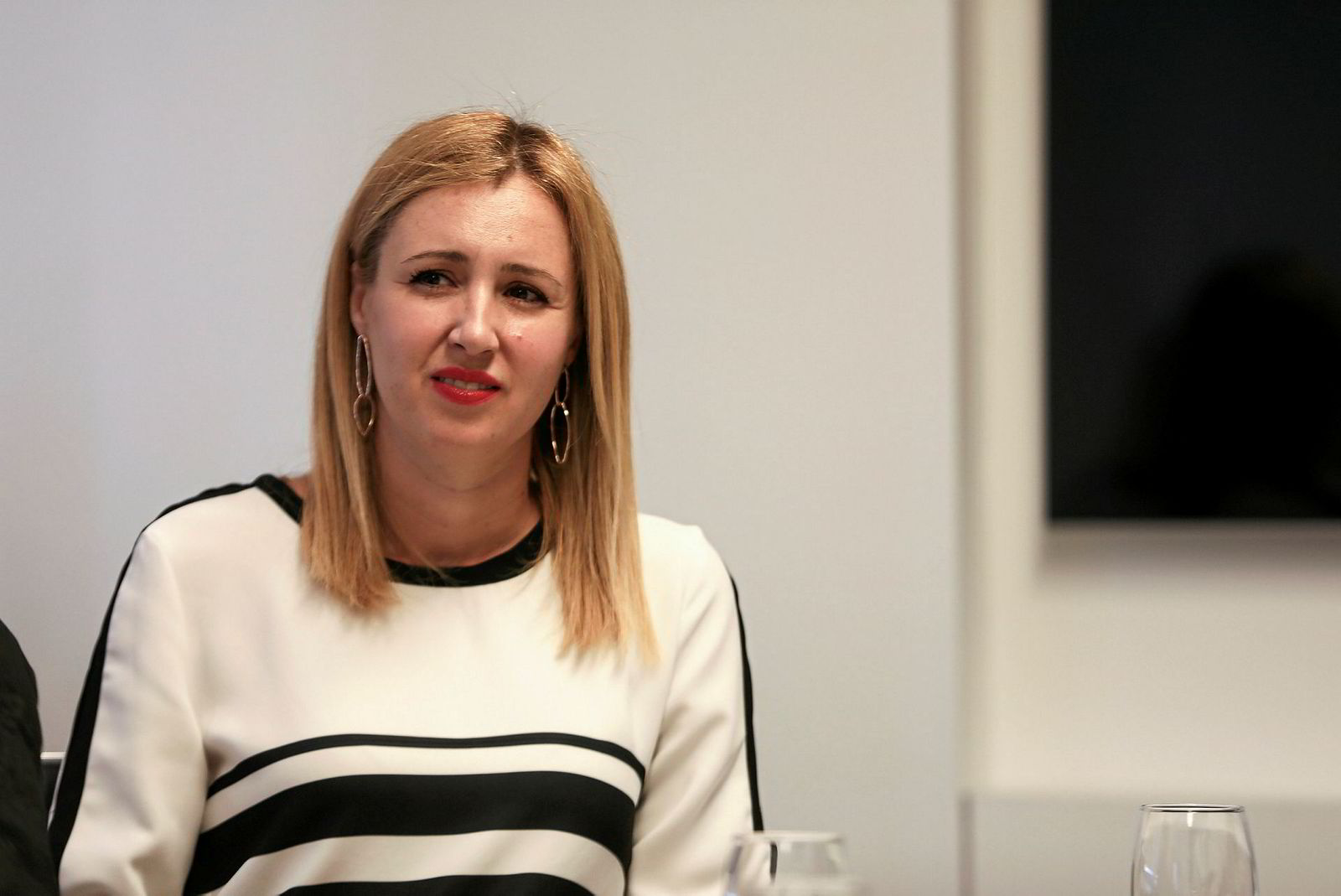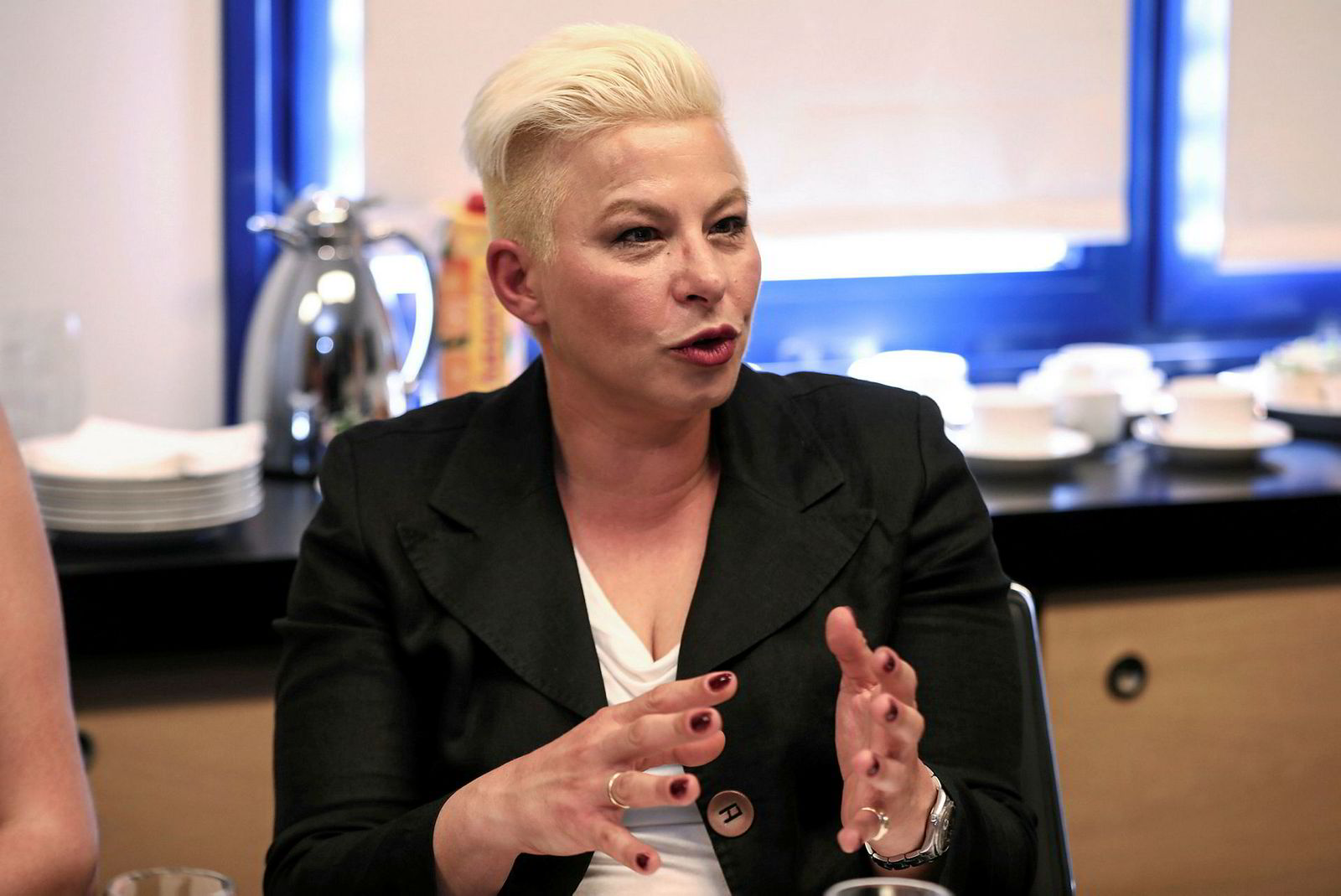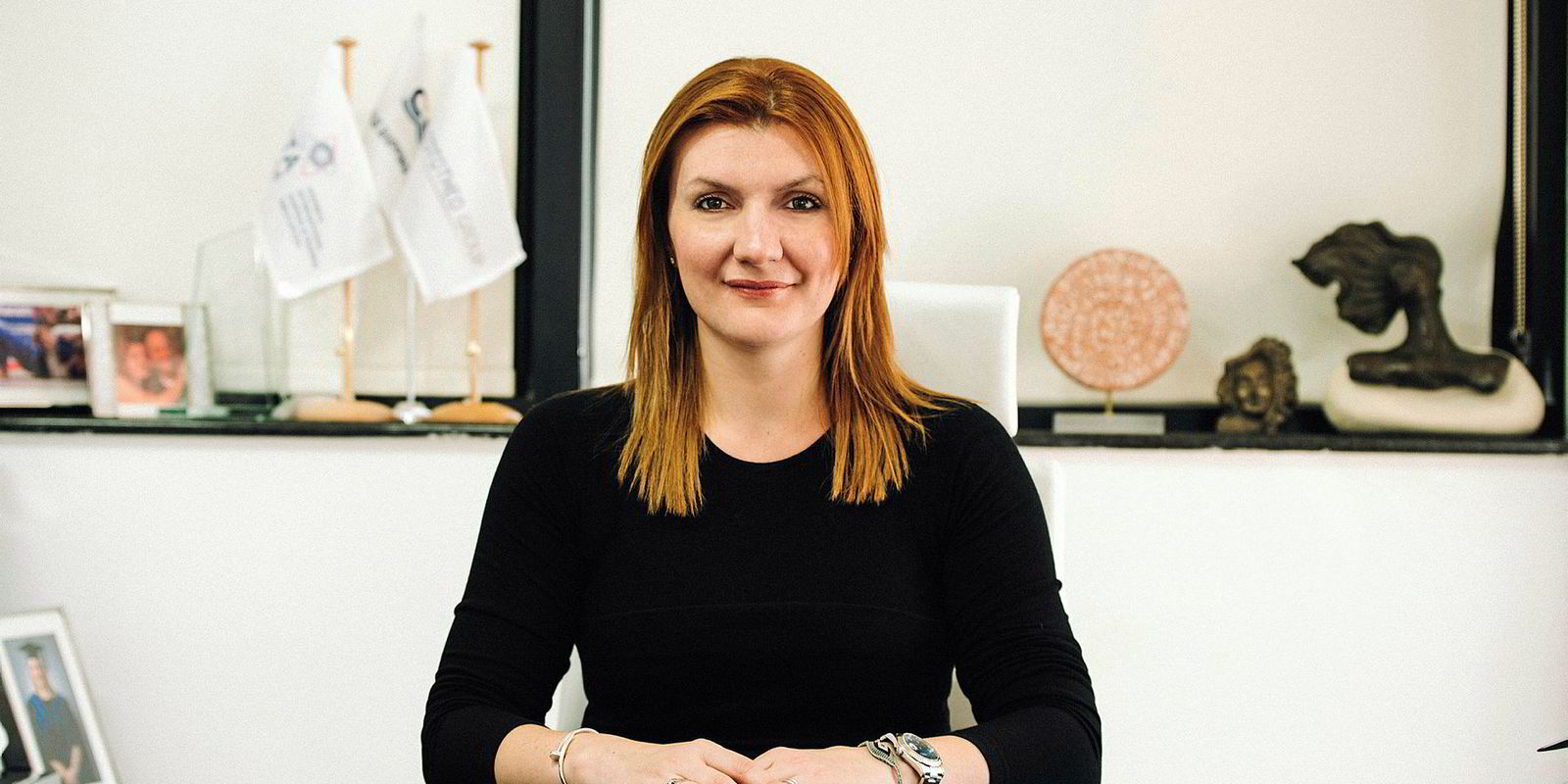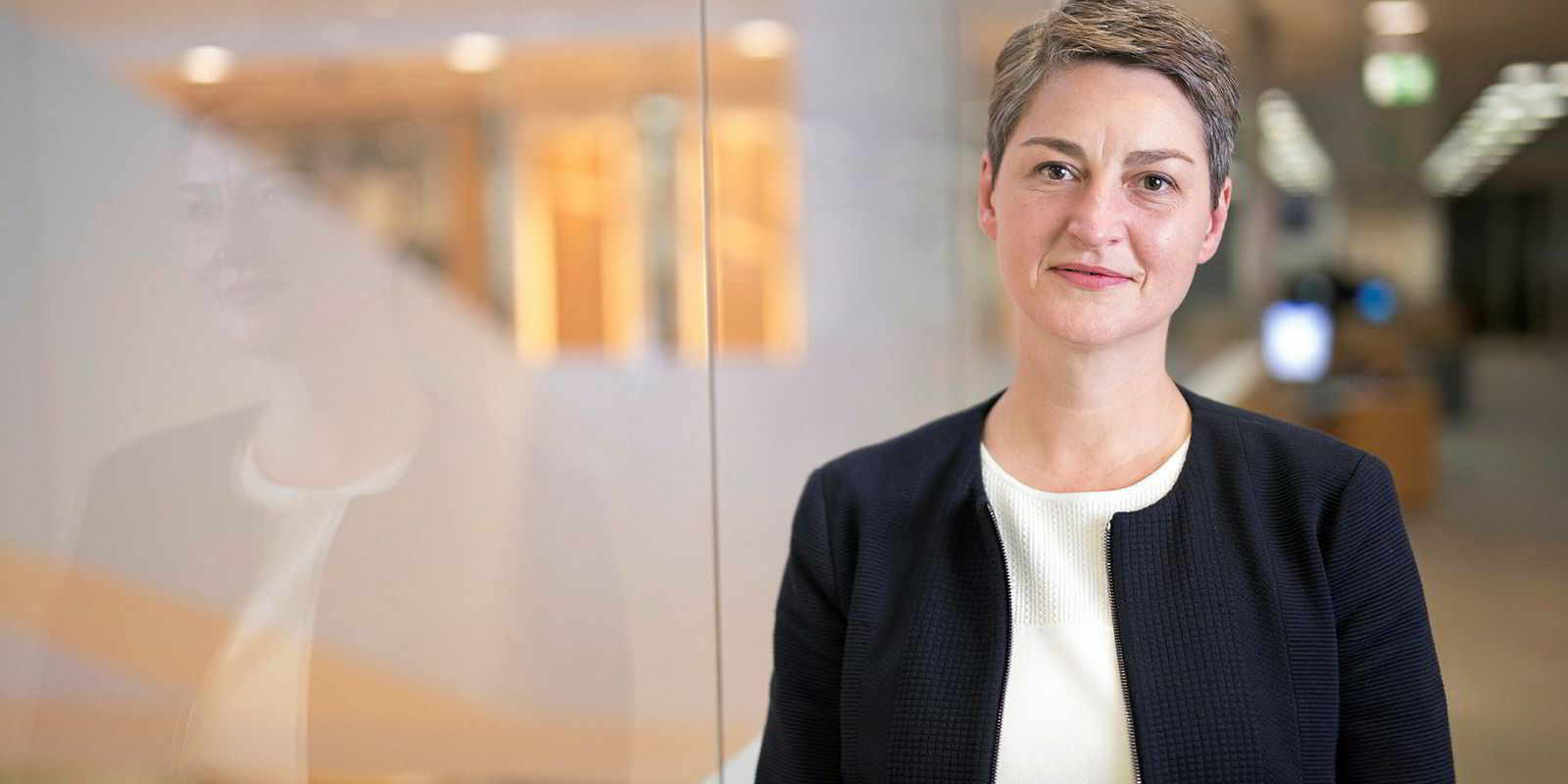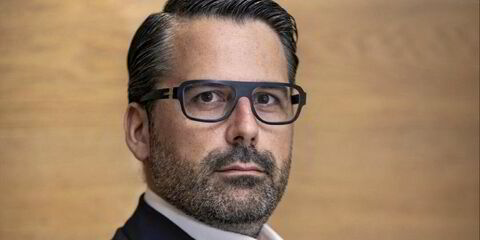Ships carry most of the world’s trade. So it makes sense that “this industry needs access to global talents all over the world”. Yet historically, shipping has ignored half the globe’s population and its abilities.
To find out why this has been the case and how much it has changed, TW+ went to the world’s largest shipowning country to discuss with nine women working in the Greek shipping industry what is being done and what still needs to be achieved to take advantage of those missing skills.
Participants in the TW+ Roundtable discussion, at the Athens office of law group Reed Smith, ranged from women who have recently started out, to the hugely experienced, across sectors including vessel ownership, shipbroking, shipping finance, engineering, insurance, employment, training and law.
The words spoken in the first paragraph are Paillette Palaiologou’s. The chief executive of the Hellenic & Black Sea region for Bureau Veritas has worked in the technical side of shipping since the 1990s, so is well qualified to add: “It is important to look for the right person for the right job — not the right man.”
There has been a lot of progress in the past 25 years, in Greece and internationally, but much still needs to be done, the panellists agree. All stress the point that women in shipping have had to be extra hard-working and dedicated; to ensure they are very knowledgeable; to radiate confidence and be persistent.
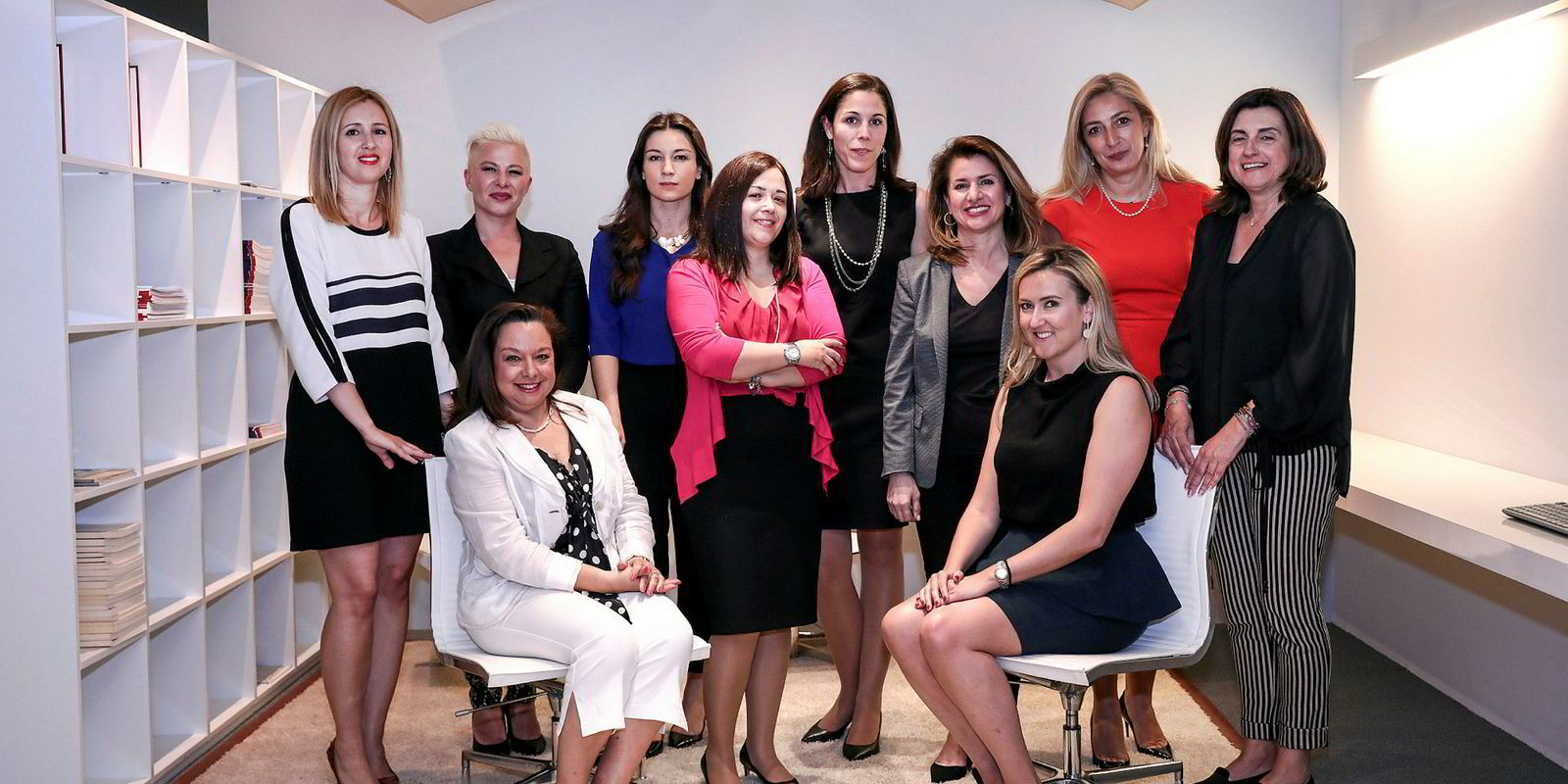
Katerina Stathopoulou, executive director at financial adviser Investments & Finance, started in the mid-1980s. “I was only in my 20s when I knocked on the door of Athenian Sea Carriers. The CFO was an ex-City banker and it was a very tough interview.
“I really needed to show that I wanted it and believed I could do it. His last question was, ‘Where do you want to be in five years’ time?’ and when I said: ‘In your chair’, it just blew his mind.”
Later, even as an experienced banker, Stathopoulou said, “They still looked at me as though ‘what does this little woman know as head of shipping?’ But they did know that I was head of the credit department, so if I did not put my signature on it, they were not getting anything.
“As an adviser I still had to work harder to get accepted that I knew what I was saying. But I was lucky my principals have always had an open mind and embraced diversity. They wanted to hear the other point of view.”
Eletson Holdings president Lascarina Karastamati admits she did not have to pass an interview to progress in her family’s tanker-owning company. But she has been responsible for employing staff, and the owner has 24 women onboard its vessels.
“Our mentality is to give equal opportunities and we try to use the same standards for men and women seafarers. The truth is that the job is difficult. Even though a lot of young women want to go into the academies, not all of them seek full [seafaring] jobs later, but a lot want to try and almost all of them are very capable,” Karastamati said.
Eletson offers special training to its female seafarers to help them cope with feelings and behaviours that might arise when they can be the only woman among 20 men on a vessel.
“We are very satisfied by their progress and we aim to continue to have women onboard as long as they feel they can continue,” Karastamati said, while accepting that many will want to leave their ships when they decide to have children. “We are trying to get women who, when they feel it is time to leave the vessel, that they can come and work in shore-based jobs.”
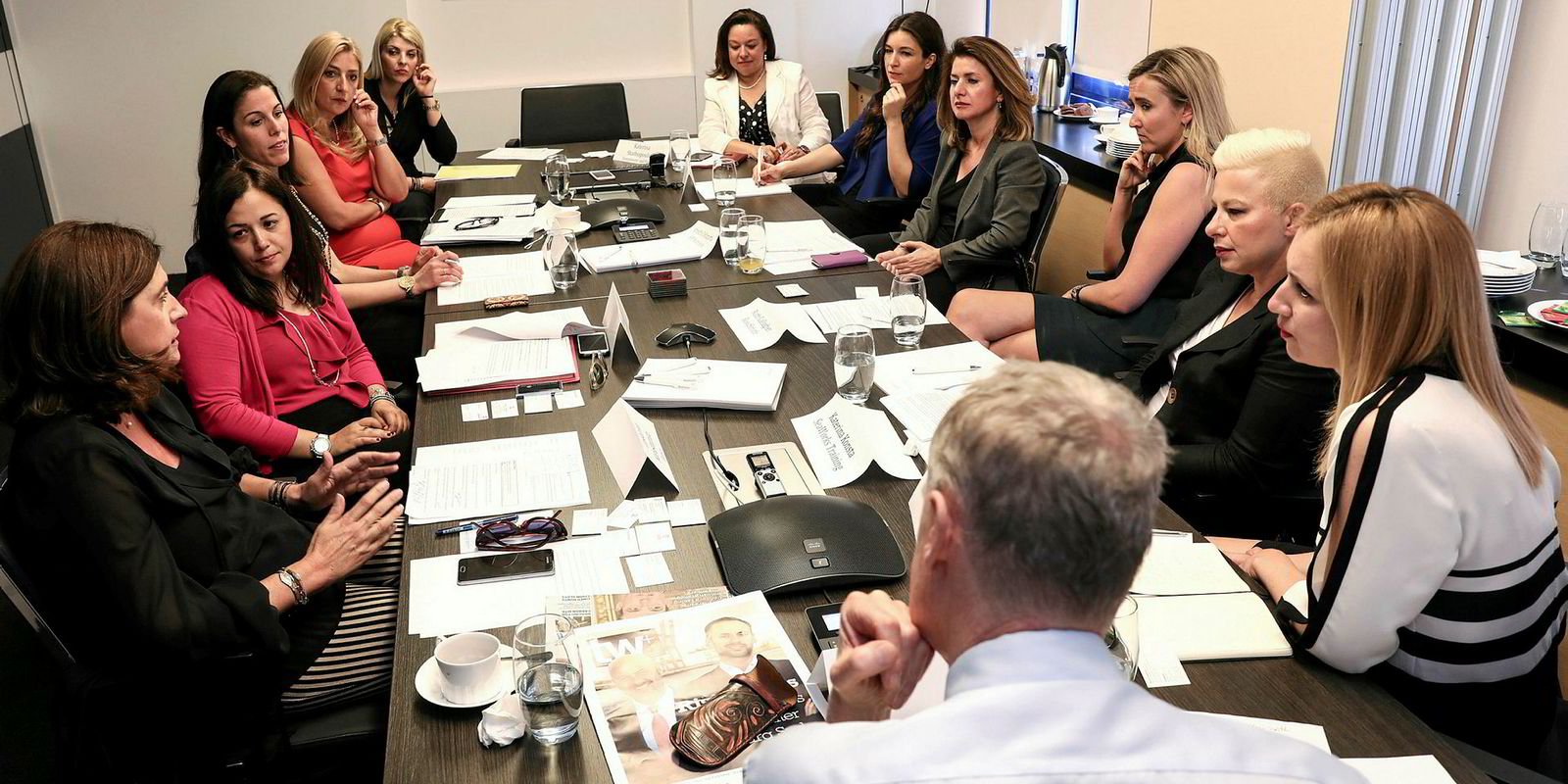
Practical experience is important, Palaiologou and Karastamati agree, to understand the complexities of shipping, but it is not just women who want to come ashore.
Katerina Konsta, chief executive of training firm SeaWorks: “The issue is not just recruiting, but retaining people. Men may go up to second officer level because they want to work ashore. We do not just lose women from ships but men as well.”
Golden Destiny deputy managing director Sofia Kokkinis says her family-owned shipbroker is interested in personality and capability, not gender, when recruiting. “In S&P we are seeking more mature personalities, men or women. They need to know the market to sell vessels, so they need experience.”
Kokkinis did not encounter gender bias because she says clients felt it was natural that she progressed as she proved her productivity, but admits she had to demonstrate that she knew the business first.
“I found myself having to prove myself to my fellow workers,” added Afrodite Dellaporta, now legal manager for owner AM Nomikos. “The boss was happy, but to prove myself to other men at the same level, I had to work harder. If I said I wanted to go to see my daughter’s recital at five o’clock, it was: ‘She’s a mum’. If it was my colleague who is a man, ‘He’s a really good dad’.”
Maria Mavroudi, business development manager at Seascope Hellas insurance service provider, said: “We are asked to prove we are capable of the job before we are given a job, but male colleagues are promoted usually on their potential.
“I didn’t face age bias,” though, she added, “because I started out as an average adjuster, so everybody was silent when I entered a room because they didn’t understand it. So I was lucky on that front. But I faced it when I set up my own business a few years ago. I had to show not only that I had the money but that I was capable to gain their trust.”
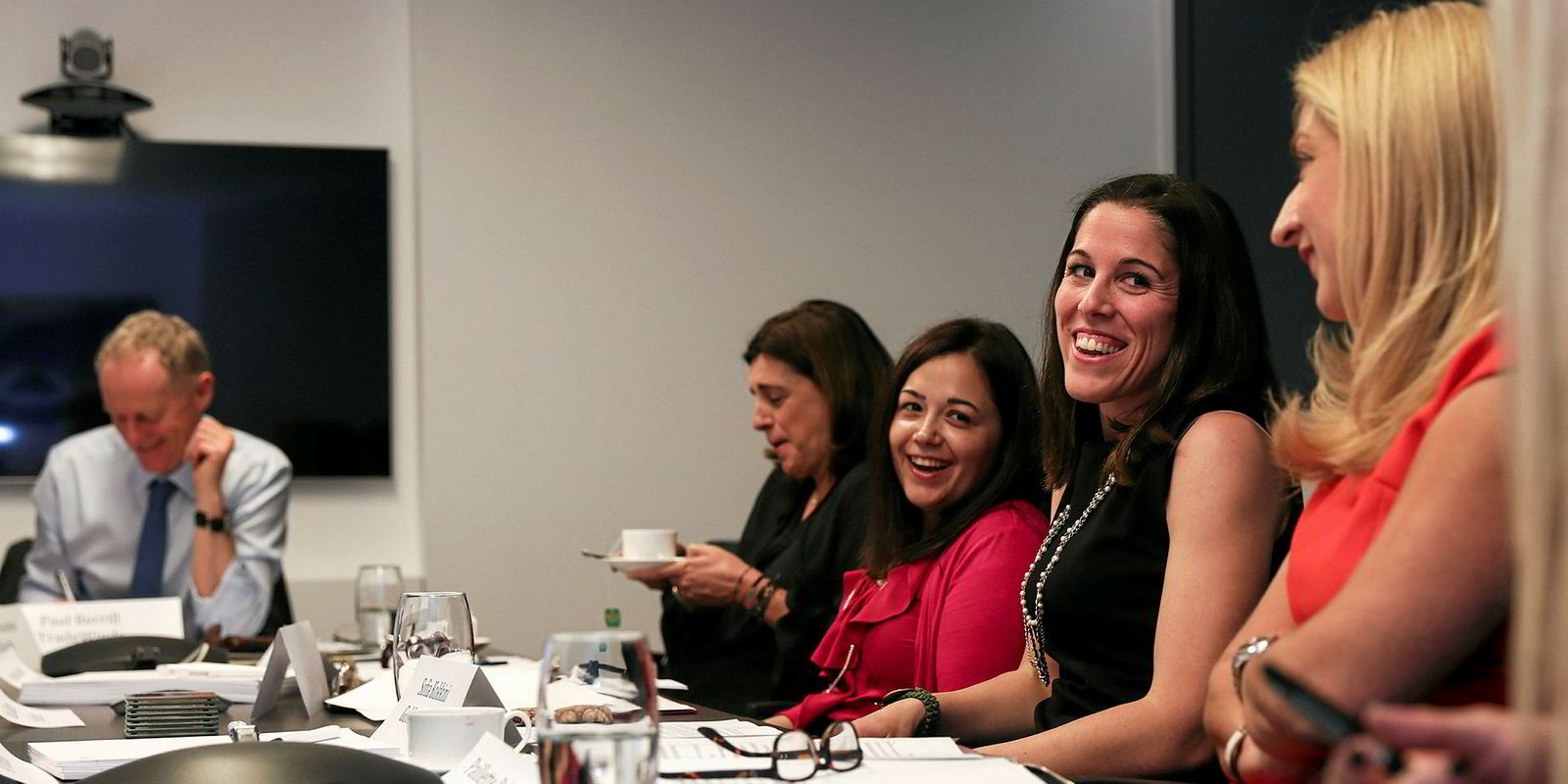
However, the age issue is changing, at least in some sectors. Irish associate lawyer Ruth Gallagher, who has worked at Reed Smith’s Athens office for three years, says that as a “millennial” starting out, she has not noticed discrimination at junior levels.
“We are treated the same, we are as educated as the boys, they are seeing us as competition and I am taken just as seriously as my male counterparts,” she said.
“I am, however, noticing, as I get more senior, we are beginning to drop off. Women decide they want to have a family and so don’t want the level of pressure that a partner can have, and stop advancing. Or the people who make the decisions are still very much a male-dominated group, and their prejudices or biases are of a different generation. They pick males over women because that’s what has always been done.”
Eva Tzima, director of research & valuations at shipbroker Intermodal, added: “When I interviewed for my current job, I saw this doubt in my boss’s eyes because I was in my 30s and changing sectors.
“So I tried to put myself into his shoes. Do you want to hire this woman who might be having a couple of kids in the next few years and has never worked in shipping before? It’s human if he thinks like that, so I doubled my effort, tripled my effort to prove myself.”
But although the panel agrees that attitudes in Asia and the Middle East remain more entrenched, things are improving. The proof is this group of lively, committed and perceptive women who are holding this discussion in this room, and they agree that slowly but surely the industry is accepting them and the values they can bring.
“Women on ships was unheard of a few years ago,” Stathopoulou said. “It just took one or two brave ladies to step forward and one or two courageous companies to trust them. You need to have women visible — have role models. Then slowly but surely everything changes.”
Karastamati said: “I want to believe we don’t differentiate between two candidates for shore-based jobs, but we trust women more because we know they are more loyal, they will be next to us when needed; it’s a female quality. We really need females in the office because it adds to the quality.”
“The gender brings a different way of thinking, and you can never resolve an issue with the same mindset that created it, so you need different ways of thinking,” Stathopoulou added.
Examples of female values come thick and fast: team spirit, integrity, empathy, emotional intelligence.
“With women in the office it is more like a family. They want to take care of the extended family,” Dellaporta said. “You want to do the right thing. Chartering does not have to be win-lose — ‘I am out to destroy you’. We realise a relationship is necessary for both of us to survive and we look at it more advantageously, and in the end profitably.”
Palaiologo pointed out: “Our mothers were discreet leaders of the house, keeping the family together. This leadership, creating families and teams, is a quality that shipping needs.”
And Gallagher: “These qualities are often viewed in the negative and I don’t know why, because they can be such positive things. Loyalty. Intuition. Women are much better at reading situations generally than men. When women are accused of being too emotional, maybe they are reading the situation better.”
“Women [are] networking, supporting each other, exchanging ideas and views, experiences, finding ways of manoeuvring situations,” Mavroudi said of the Women’s International Shipping & Trading Association (Wista). “I feel extremely lucky I can learn from other women’s experiences. It helps me think outside of the box. Women by nature have many roles. We solve problems all the time.”
It does not mean they don’t want to work with men. “We need to be fair, not look for revenge,” as Konsta put it.
“It needs to be acknowledged that female and male talents are complementary, not antagonistic,” Stathopoulou added. “Once that changes within company culture, it will flow out to the real world. We are there for the same purpose: the growth of the company and the bottom line.”
Karastamati warned: “One of our biggest mistakes is to try to be men. We are women, and our qualities are so many and so precious. We need to stay women. And we need not to disregard men’s qualities, which are absolutely needed in the shipping industry. Some of their qualities, like fast and furious — ‘We are going to do this now’ — sometimes it is necessary in shipping.”
And Dellaporta added to a chorus of appreciative agreement: men take more risks than women.
On the other hand, Tzima said: “Women have a lot more empathy than guys. You can use that to fix things quietly. But to be fair, I enjoy working with guys — women can be very competitive as well.” And, Gallager said, “Men have to be part of the conversation. It’s not going to work otherwise.”
Old-fashioned values can still be appreciated, though, and can also prove advantageous to mixed-gender teams.
Stathopoulou recalls a trip to South Korea in late 2008 as the Lehman Brothers crisis began to bite. “We started to try to negotiate to cancel contracts for a large client with a lot of newbuilding orders at a Korean shipbuilder, but the yard was not responding to phone calls and emails, so the owner decided to fly in to see them.” The yard president met the delegation but said he only did so and held the discussions because a woman had been part of the team.
Kokkinis added: “Our male brokers, when they are negotiating with a woman, they are never rude, but with [other] men it can be different.”
The opposite of what might be expected can also be true. Kokkinis again: “I have met male candidates that, when asked, ‘Would you go on a vessel?’, said, ‘I would have to ask my Mum’. We were speechless. Women say: ‘Sure’.”
And Palaiologou: “Some clients, before they give you a job, start calling on Saturday or Sunday night; it is a test to see if I will pick up the call. They are asking: ‘Are you available when I need you?’”
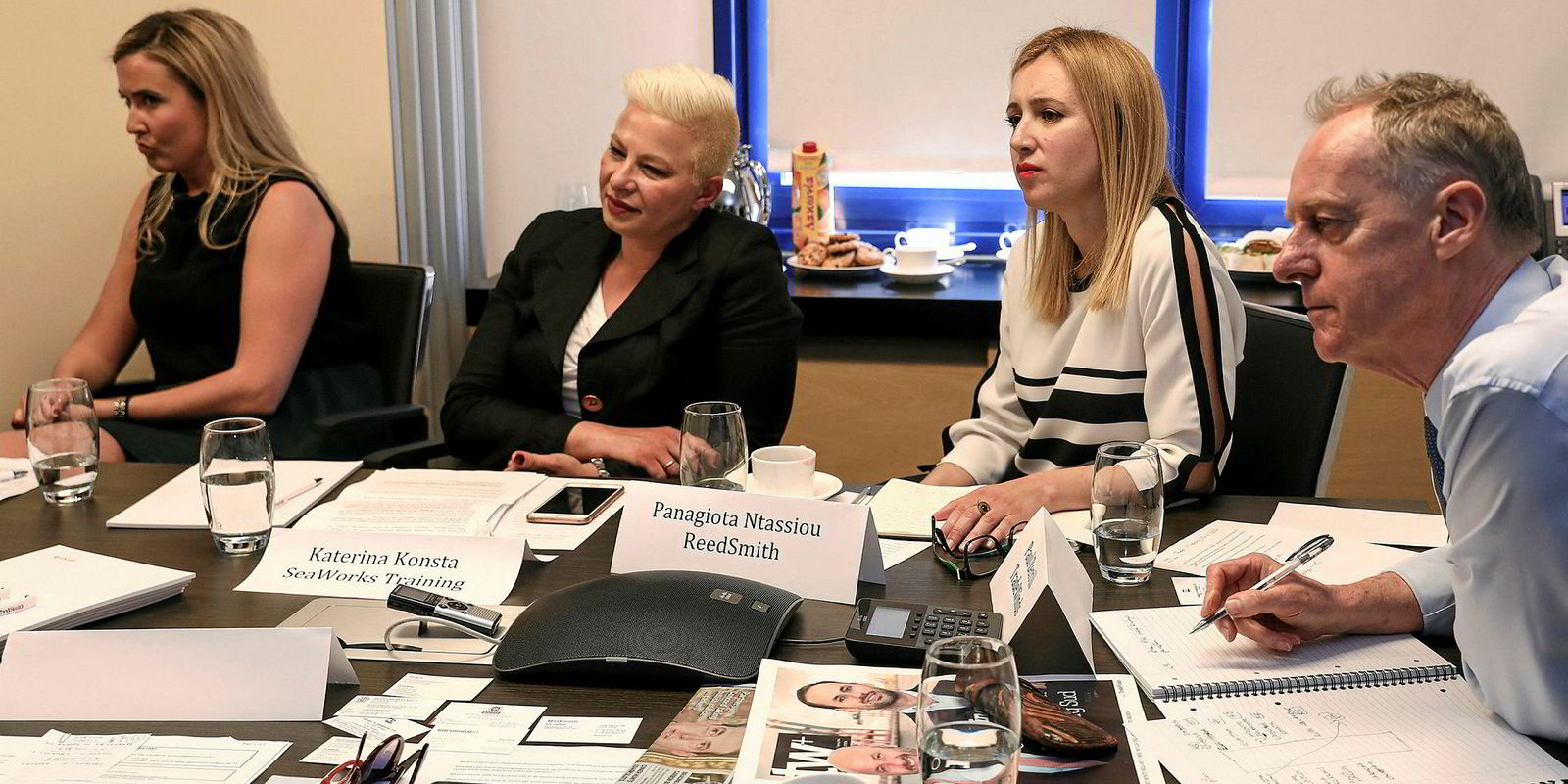
But technology and the changing nature of work and where it can be done are ripe to be harnessed.
“It is very important that companies in shipping adopt a flexible work environment that allows women to be productive when they have children,” Stathopoulou said. “Technology now is such that you can be effective at your job even if you are not in the office. I think this will assist women to be more proactive in seeking jobs in shipping when they are thinking, in the office or on the ship, it can be a 24-hour job.
“Having a family is an important aspect for everyone, to have a balanced life. I have done it. I gave birth to and raised two children and had a loan closing in an era when the internet was not widespread. So, it’s doable.”
Dellaporta: “You need to believe in yourself. A lot of women are ambitious but sometimes they lose it because they let the hardships and problems gang up on them and they give up. The most important thing is to stick with it and focus on the good things.
“Anything you really love, there will be hardships and difficulties. Even raising children, you can love them and hate them. But it is all worth it and at some point it will all come together.”
Palaiologou recalls 25 years ago sending out a CV and getting a response that the organisation did not accept women. The person who wrote back is a client today.
Tzima has experienced bankers or owners who want a valuation saying they would like to speak to the responsible person and asking for one of her male colleagues. They need convincing that to get a valuation, she will have to sign it.
But she added: “If you talk to more closed-minded guys and they get a good experience, then [next time] they want to speak to me, not my boss.”
“Education and empowering women is important,” Dellaporta said. “To get them to stick with it, be bold, express your opinion. And teach them from our mistakes, because we have made them.”
“I would love to see in 10 years’ time that we don’t need Wista any more,” Mavroudi added, “but at this stage we need to empower each other.”
There is a responsibility for every woman in a managerial position to be a role model, Tzima believes. “Every single woman I have met has been an inspiration to me.”
But Palaiologou and Kokkinis also think the questions need to be asked of men. “Men should talk about it. It’s not an issue for us,” according to Kokkinis.
Gallagher summed it up: “The environment is changing. Men need to be part of the change, and it’s going to happen together. You can be inspired by men or women — there really shouldn’t be a dichotomy. Everyone just go and be good at your job because you want to do it.”
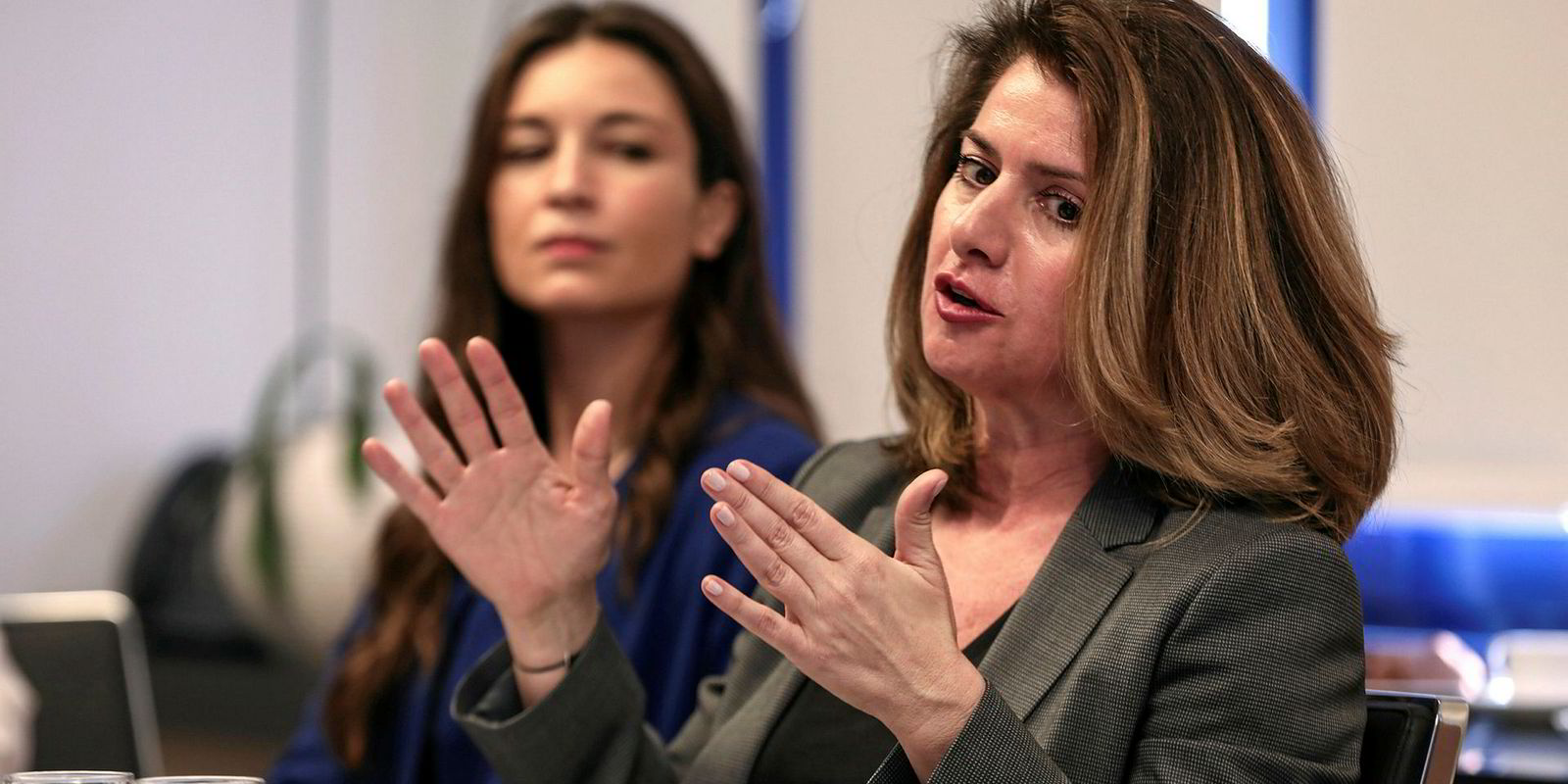
In their own words
Afrodite Dellaporta I always felt I needed to be a bit tougher than maybe I should have, and now I have decided I want to be more of a woman and I do not want to let go of those qualities, and I don’t want to be a man — or a woman in a man’s world.
Lascarina Karastamati One of our biggest mistakes is to try to be men. We are women, and our qualities are so many and so precious. We need to stay women. And also we need not to disregard men’s qualities, which are absolutely needed in the shipping industry.
Paillette Palaiologou When I said I wanted to become an engineer, some people looked strangely at me and some laughed, but inside me I did not feel I was saying something strange. I was very lucky when I started my career, as Oceanbulk Maritime was a company owned and managed by very open-minded people. But I was very persistent too.
Eva Tzima I always had to be really conscious about everything. From the way I am going to dress every morning — I want to look nice but I want to look professional as well — to the way I talk to people. Sometimes I have to be a bit harsh because I have to draw a line when I walk into an office with 30 guys.
Ruth Gallagher Being a non-Greek in a Greek world meant I had to learn that the men weren’t seeing me the same as the boys I grew up with and have been working with. I get an owner on the phone and he wants to speak to the partner. This has been very difficult for me, coming from a culture that is a bit more equal.
Katerina Konsta The issue is giving everyone the same chance. It is a problem for all companies, not just Greek or shipping. In the US you expect things are better — yes, but it depends on the company, the person, the area, many things.
Sofia Kokkinis A client of ours, a woman shipowner, went with her technical manager to Japan. When they were met at the airport, the Japanese representative took the technical manager and left the owner behind.
Maria Mavroudi The insurance business is more female-dominated. Women are getting more and more senior and decision-making roles. It’s a work in progress but I am learning from other women what I would want my job to be like in the future.
Katerina Stathopoulou We like interaction [between genders] and we encourage it. Wista is not a feministic organisation. It is a networking organisation that has raised the visibility of women in the industry and promoted cooperation with other shipping associations. In our events we have men. We are trying to get everyone to go and over and say hello and network with the whole industry.(Copyright)
